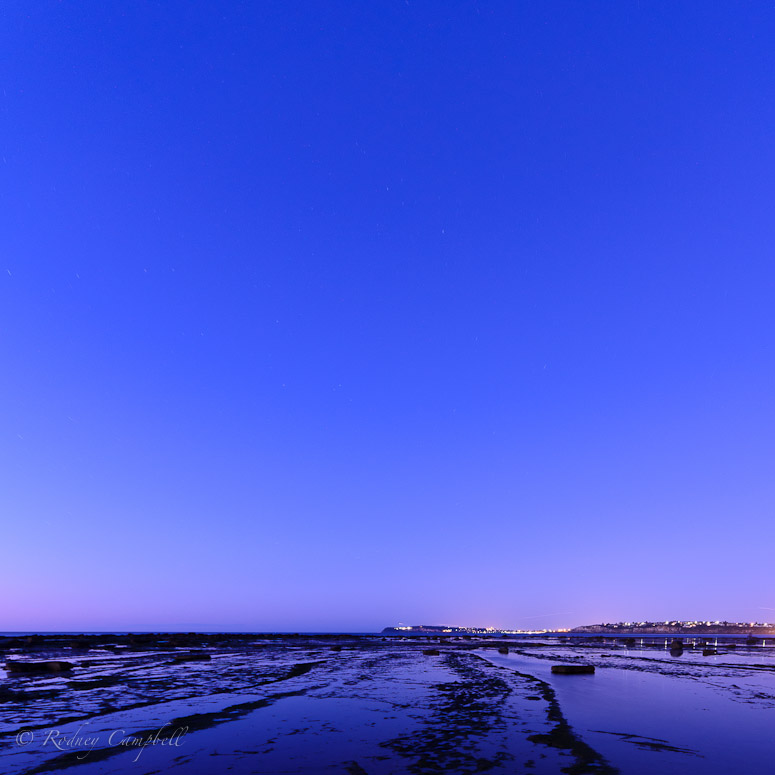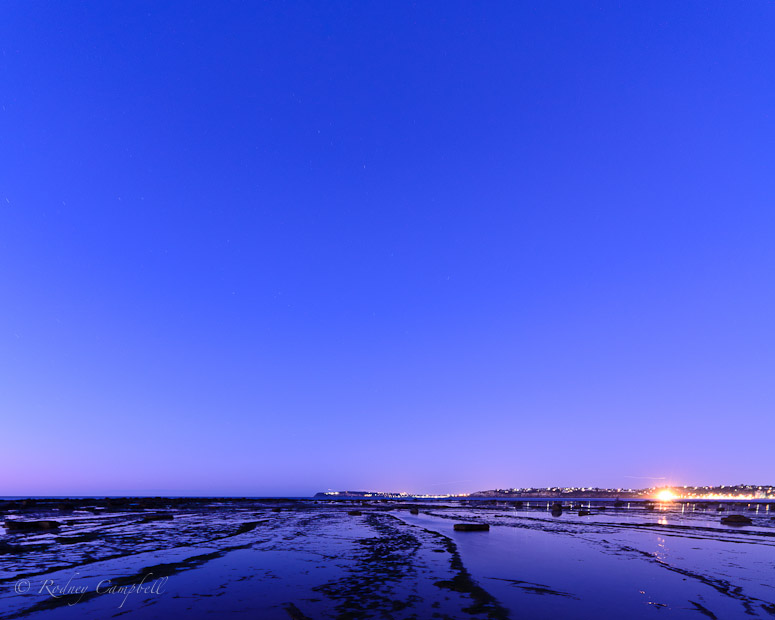Long Reef Dawn Seascapes @ Collaroy - Aka Cloudless Skies...
My local camera club had an early morning outing to Long Reef at Collaroy here in Sydney for a dawn and sunrise photoshoot followed by a breakfast bbq over the weekend.
It has been almost exactly a year since I last shot at Long Reef. We had a very early 5:30AM start in the carpark at Long Reef Golf Club for the walk around the course and headland, and then down the ridge to the ocean and reef. Sunrise was due to arrive at 6:45AM however the best light for seascapes is generally that hour long period before sunrise and then perhaps some time afterwards depending on the clouds and conditions.
There are a couple of things a photographer really desires for a good seascape shoot:
- no rain
- a sunrise
- clouds - some but not too much so you get great colour in the sky and clouds
- not too much wind and sea spray (although moving clouds is nice during the really long exposures)
- you will also be concerned with the tides (depending on whether you want low, still water, high, lots of wave action, etc)
Unfortunately whilst we had the first two (it was glorious weather for winter) we had absolutely no clouds at all and the skies were perfectly clear which makes things rather difficult for typical seascape compositions.
Given the conditions (it was also low tide which left most of the reef exposed with lots of pools of nice still water for reflections) I decided to try my hand at light painting rocks on the reef shelf before sunrise and then opted for some slow moving water compositions after sunrise.
I'd appreciate any comments you have, good or bad - on composition, technique, whatever
6AM (about 45 minutes before sunrise). For this image I'm facing away from where the sun would be rising and back towards the city with an ultra wide angle (@8mm), no filters, etc. This was pretty much a guess of the exposure of 3 minutes @ f/8 (and almost nailed it - lucky) and I painted the rock with a torch during some of the exposure (again a guess as to how long). I over painted the front of the rock and the ground in front which I've adjusted in post but other than some minor work this is pretty much as shot
Purple Dreams

6:20AM - switched to the 17-50mm so I could use my Lee filter and 3 stop hard ND Grad and tried one more facing towards where the sun will rise - even with the grad to darken down the sky you can see it's much lighter now with a 15 second exposure at f/16 and my rock painting had to be much brighter (used two torches) and quicker during this relatively short exposure
Blue Reef
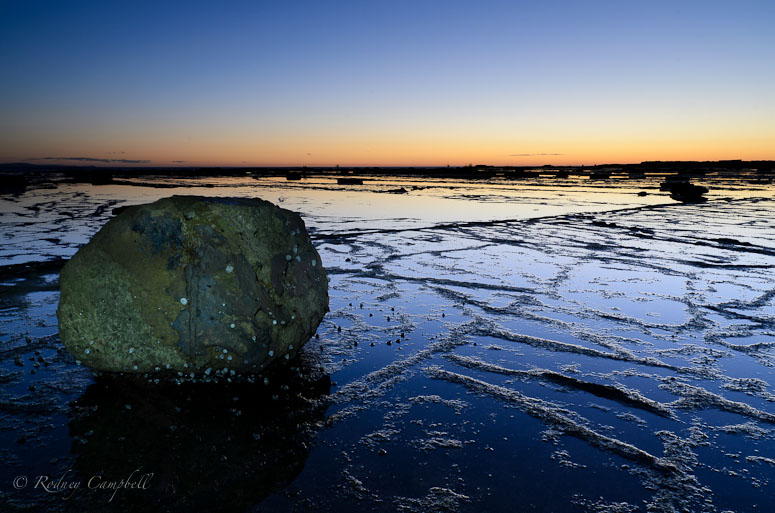
6:25AM - by this time I'm struggling to control the light and everything after this was basically too bright even with the grad
Solitude
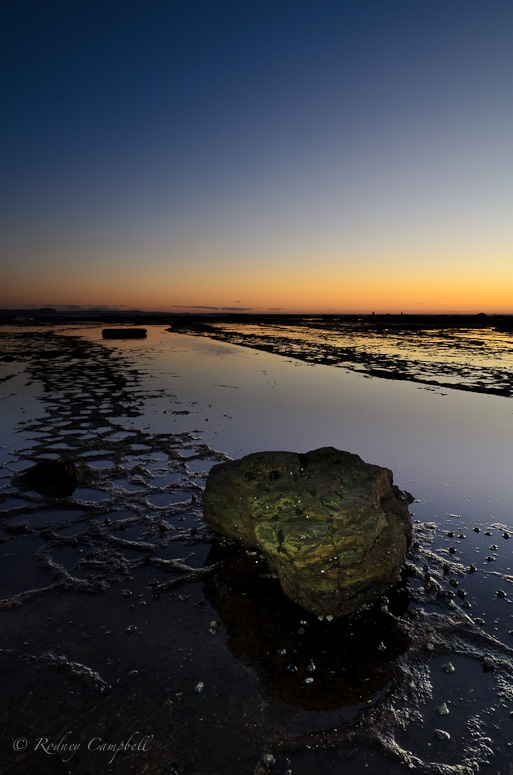
6:46AM (sunrise). I was lucky enough to find this spot with a nice break in the reef edge along with these nice setos of rocks (one close and one off in the distance) all nicely lined up with the sun as it peeks over the horizon. Sometimes luck plays it's role as I'm scrambling to setup in time as the sun just hits the horizon (within two minutes the whole show is over and the sun is up)
Rays of Dawn
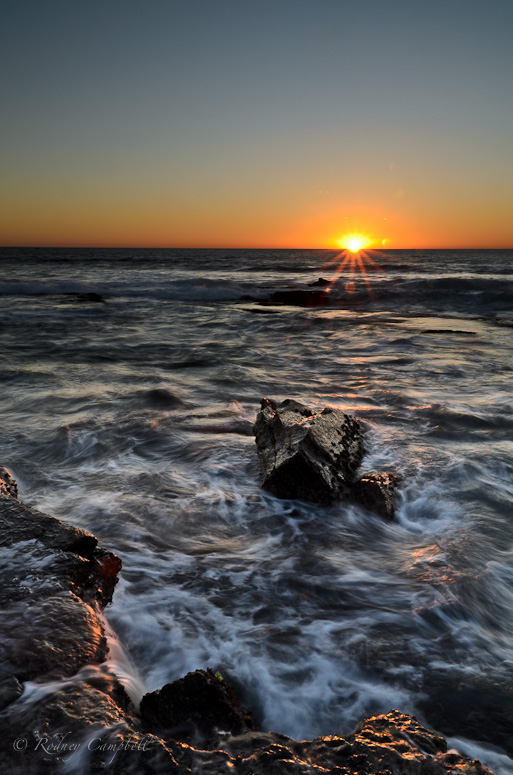
7:15AM (30 minutes after sunrise). I shot the following with both the 3 stop hard Lee Grad ND stacked with a 4 stop (HiTech) ND which Ray kindly lent me which allowed me to reduce my shutter speed to a more useful 1/3 second @ f/16 rather than having to shoot at f/32+
The Wash
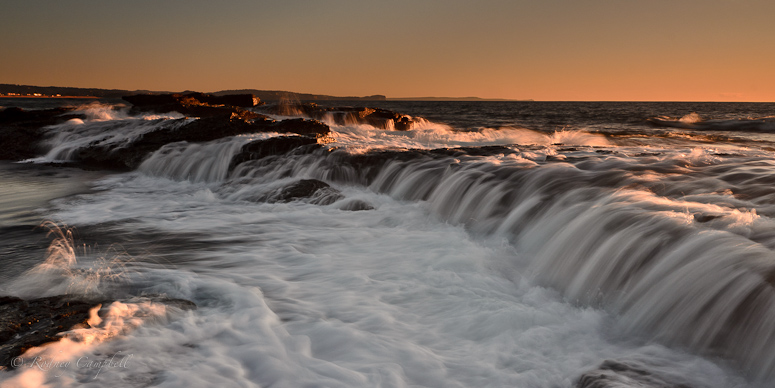
It has been almost exactly a year since I last shot at Long Reef. We had a very early 5:30AM start in the carpark at Long Reef Golf Club for the walk around the course and headland, and then down the ridge to the ocean and reef. Sunrise was due to arrive at 6:45AM however the best light for seascapes is generally that hour long period before sunrise and then perhaps some time afterwards depending on the clouds and conditions.
There are a couple of things a photographer really desires for a good seascape shoot:
- no rain
- a sunrise
- clouds - some but not too much so you get great colour in the sky and clouds
- not too much wind and sea spray (although moving clouds is nice during the really long exposures)
- you will also be concerned with the tides (depending on whether you want low, still water, high, lots of wave action, etc)
Unfortunately whilst we had the first two (it was glorious weather for winter) we had absolutely no clouds at all and the skies were perfectly clear which makes things rather difficult for typical seascape compositions.
Given the conditions (it was also low tide which left most of the reef exposed with lots of pools of nice still water for reflections) I decided to try my hand at light painting rocks on the reef shelf before sunrise and then opted for some slow moving water compositions after sunrise.
I'd appreciate any comments you have, good or bad - on composition, technique, whatever
6AM (about 45 minutes before sunrise). For this image I'm facing away from where the sun would be rising and back towards the city with an ultra wide angle (@8mm), no filters, etc. This was pretty much a guess of the exposure of 3 minutes @ f/8 (and almost nailed it - lucky) and I painted the rock with a torch during some of the exposure (again a guess as to how long). I over painted the front of the rock and the ground in front which I've adjusted in post but other than some minor work this is pretty much as shot
Purple Dreams

6:20AM - switched to the 17-50mm so I could use my Lee filter and 3 stop hard ND Grad and tried one more facing towards where the sun will rise - even with the grad to darken down the sky you can see it's much lighter now with a 15 second exposure at f/16 and my rock painting had to be much brighter (used two torches) and quicker during this relatively short exposure
Blue Reef

6:25AM - by this time I'm struggling to control the light and everything after this was basically too bright even with the grad
Solitude

6:46AM (sunrise). I was lucky enough to find this spot with a nice break in the reef edge along with these nice setos of rocks (one close and one off in the distance) all nicely lined up with the sun as it peeks over the horizon. Sometimes luck plays it's role as I'm scrambling to setup in time as the sun just hits the horizon (within two minutes the whole show is over and the sun is up)
Rays of Dawn

7:15AM (30 minutes after sunrise). I shot the following with both the 3 stop hard Lee Grad ND stacked with a 4 stop (HiTech) ND which Ray kindly lent me which allowed me to reduce my shutter speed to a more useful 1/3 second @ f/16 rather than having to shoot at f/32+
The Wash

